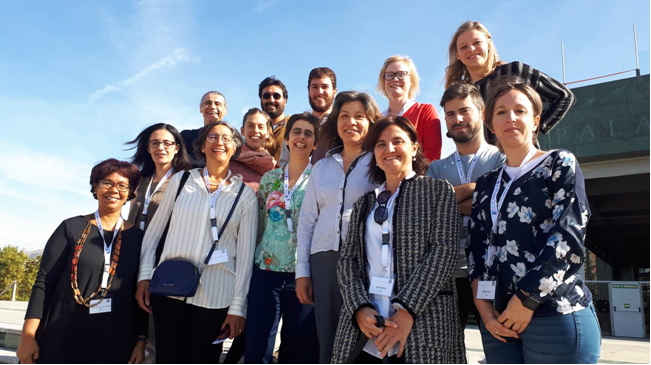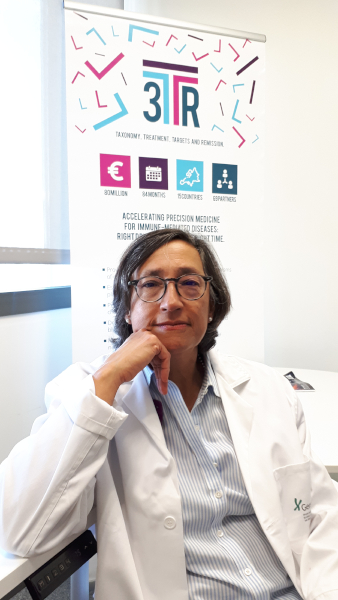Genetics of Complex Diseases
Dra. Marta Alarcón Riquelme

Group leader
Marta Alarcón Riquelme
Senior Researcher
María Morell Hita
Concepción Marañón Lizana
PHD Students
Paulina Rybakowska
Gonzalo Gómez Hernández
Technicians
Nieves Varela Hernández
Project Coordinator
Tania Gomes Anjos
Scientific interest areas
Research areas
Technology platforms
Funding
Research group patents
Additional information
3TR Project
Links:
Presentation link:

Selected publications
 Loading publications...
Loading publications... Intranet
Intranet